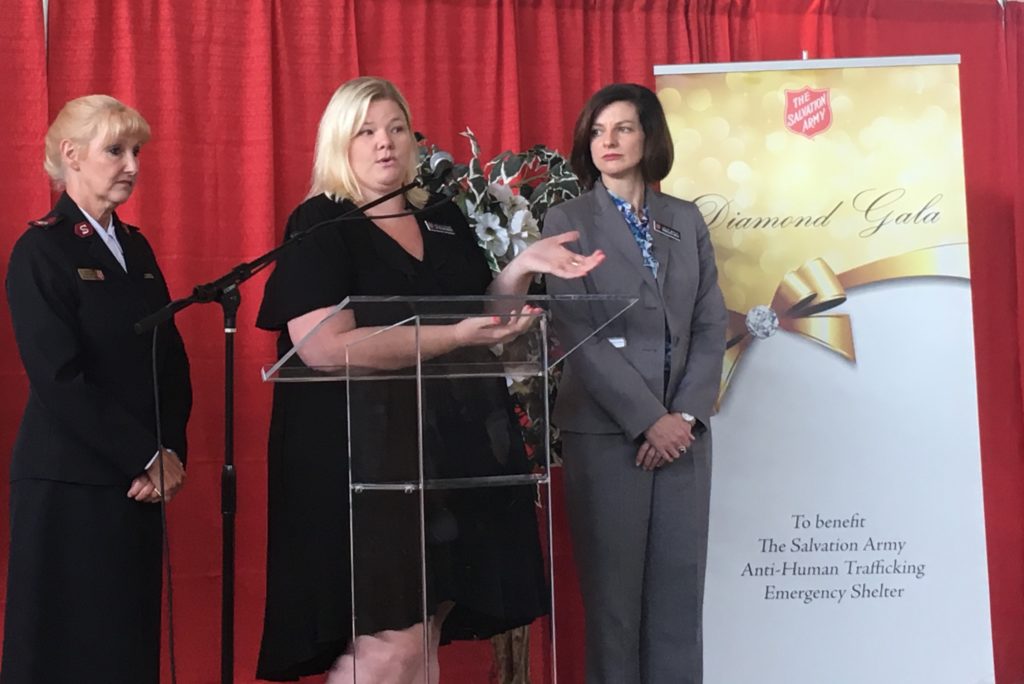The Salvation Army is opening a new, 24-hour shelter for survivors of human trafficking, a resource the charity is billing as the first of its kind in the D.C. area.
Leaders with the group’s National Capital Area Command say they can’t reveal where, exactly, the new shelter is located in the region in order to protect the people they’re trying to serve. But they held a ribbon-cutting for the new facility all the same today (Wednesday) at the organization’s Arlington headquarters in Alcova Heights.
“This strikes at the heart of the core values of the Salvation Army,” said Maj. James Hall, the charity’s commander for the D.C. region. “We believe this is the best way we can make a difference on a transformative issue addressing injustice.”
Hall added that the entire effort is being paid for by private donations. He’d originally hoped to win grant funding for the shelter, but struck out on that front.
State Sen. Dick Black (R), who represents Prince William and Loudoun in the General Assembly, commended the effort as an essential one to deal with a “rapidly increasing problem” around the region.
He placed most of the blame for that trend on gang members crossing the Mexican border, which he believes has “literally become a torrent pouring into the country” even as data show net migration levels falling in recent years.
“Runaway children are so easily preyed upon by these people,” Black said.
Kyla Conlee, the shelter’s director, says the new facility will have about half a dozen staff members in all, with two “on call” at all times if someone who’s recently escaped a sex or labor trafficking situation needs help.
She says the shelter will have eight bedrooms, and will be open to both men and women looking for a place to stay. Conlee notes that the facility will only be able to house people for up to 10 days at a time, but her staff plans to work with a network of other charitable organizations to find a more permanent living situation during their stays.
“The most immediate need someone has coming out of a trafficking situation is: where am I going to sleep that first night?” said Stuart Allen, a federal prosecutor in D.C. “I can’t take them in. Law enforcement can’t take them in… But now, victims will have a place to go that first night they need those services.”
Conlee added that her staff will work with local emergency rooms to provide basic medical care for their clients, and even more advanced care for victims of sexual assault. She also wants to offer them the basics at the facility, like new clothes and food, and plans to rely on the community for donations.
Anyone interested in making a donation can drop off goods at the Salvation Army’s Arlington center at 518 S. Glebe Road.




